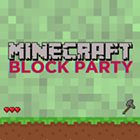Q. My 6-year-old son still needs to wear a pull-up at night. How can I help him be dry at night?
A. Why do beds get wet? Theories abound, but all involve three main elements.
1. Too much urine production (polyuria). It is typically related to too little anti-diuretic hormone (ADH), which is released naturally at night and tells the kidneys to hold onto water rather than produce urine.
2. Low functional bladder capacity, which has less to do with how big a bladder is, and more to do with how full it is when it empties. There are numerous factors that can influence this, including constipation, bladder spasm, etc.
3. Disordered sleep arousal. Every bedwetter’s parent will tell you what a deep sleeper their child is. They actually have the same sleep architecture as non-bedwetters; they just have a harder time waking up.
Incidentally, we don’t call it bedwetting officially until a child is 5 years old and has two or more accidents a month.
What to do? First of all, don’t disparage or punish the wetters — they are not doing it to be difficult. There are lots of things that parents try, many of which do not hurt the situation, but rarely eliminate bedwetting — such as cutting back on fluids after supper, going to the bathroom 30 minutes prior to and right at bed time, visualizing waking with a dry bed in the morning, waking the wetter up in the middle of the night to empty their bladder, having the wetter change their own sheets in the morning.
The most effective method for lasting results is a bedwetting alarm. This method involves clipping a sensor to the trainer’s PJs or undershorts that senses moisture and activates an alarm. For this method to work, however, both trainer and parents have to be motivated. Remember, bedwetters tend to have a problem with waking up, so parents have to be ready for some pretty rough nights in the beginning. Most often the alarm first wakes the parent, who then has to wake the child, take them to the bathroom, get them new underwear and return them to bed with the sensor in place. As fatiguing as this method may sound, it is the only one that cures bedwetting. Why waking up after wetting eventually leads to waking up before wetting is not clear, but it probably has something to do with Pavlov and his dog.
The best alarms by far are made by Malem. They are small, loud, colorful, cleanable and have replaceable sensors. And be sure you get one that makes a sound.
You may have heard of an artificial form of anti-diuretic hormone called Desmopressin (DDAVP), taken as a pill or nose spray to reduce urine production at night. Unfortunately, when the medicine is stopped, wetting often resumes. However, DDAVP can be helpful as an adjunct to a wetting alarm and by serving as a confidence booster for sleepovers and camping situations. For a trainee who wets multiple times a night, a touch of DDAVP may lessen the number of alarm events — providing some relief for a fatigued trainee and his parents.
If your child is 5 or older and wetting more than now and then, bring it up with your pediatrician or family doctor. It is particularly important to have your child evaluated if they were dry for more than six months, then started wetting again.
Good luck, and have faith: It may take time and effort, but dry happens.














